18 de fevereiro de 2026
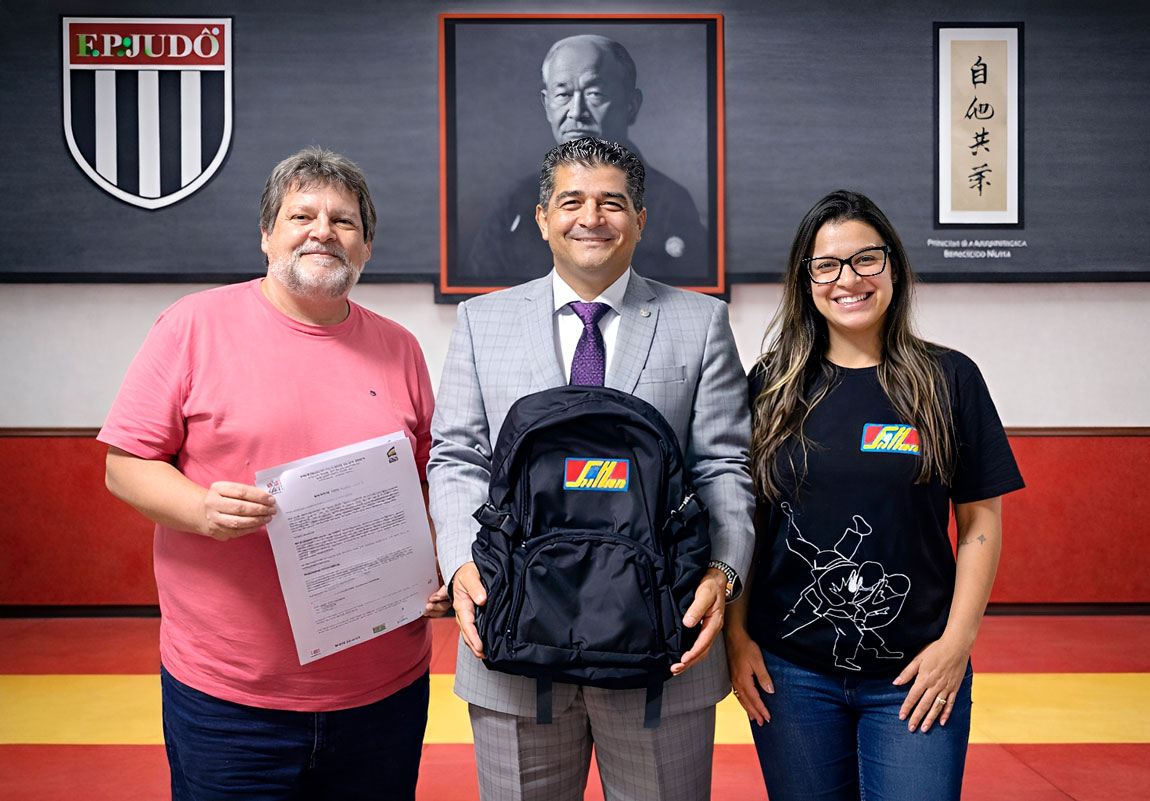
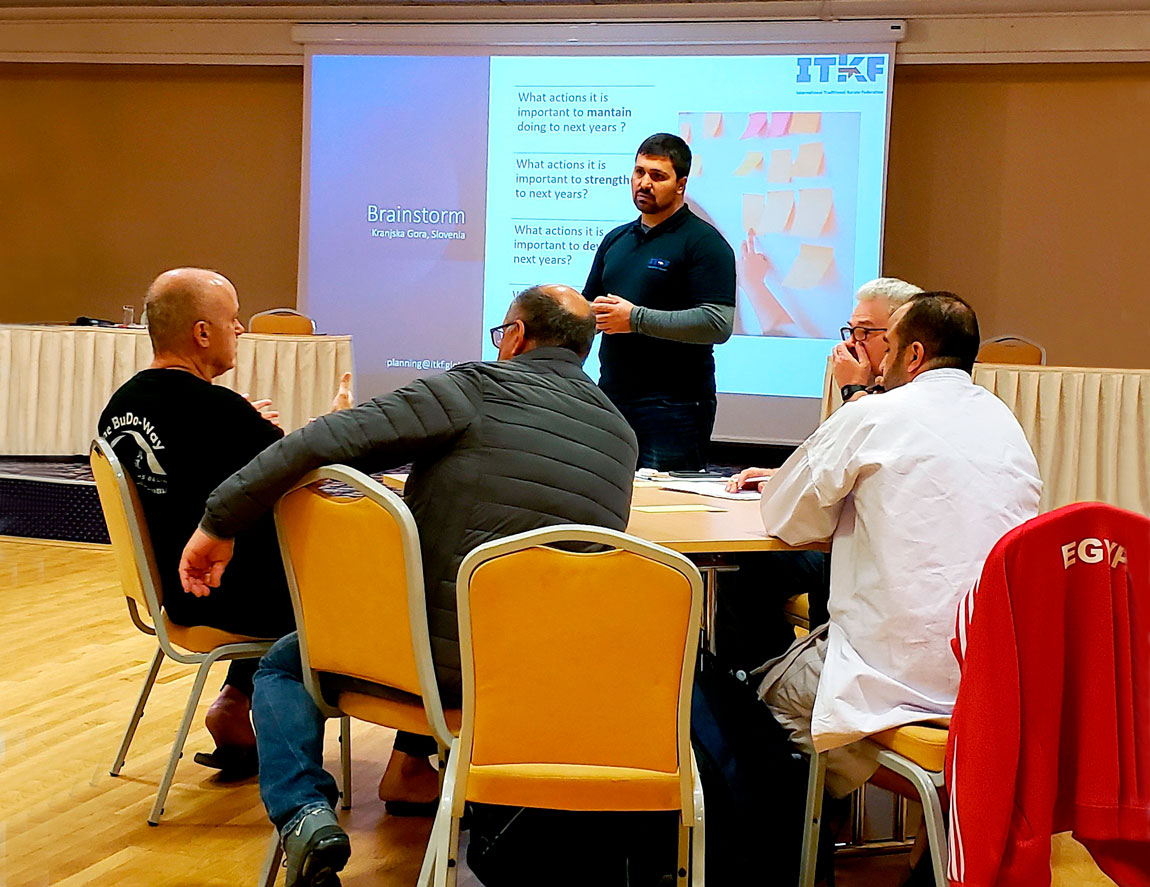 Representatives from Israel, Portugal, United States and Egypt in dialogue with Santana Pinto © ITKF
Representatives from Israel, Portugal, United States and Egypt in dialogue with Santana Pinto © ITKF
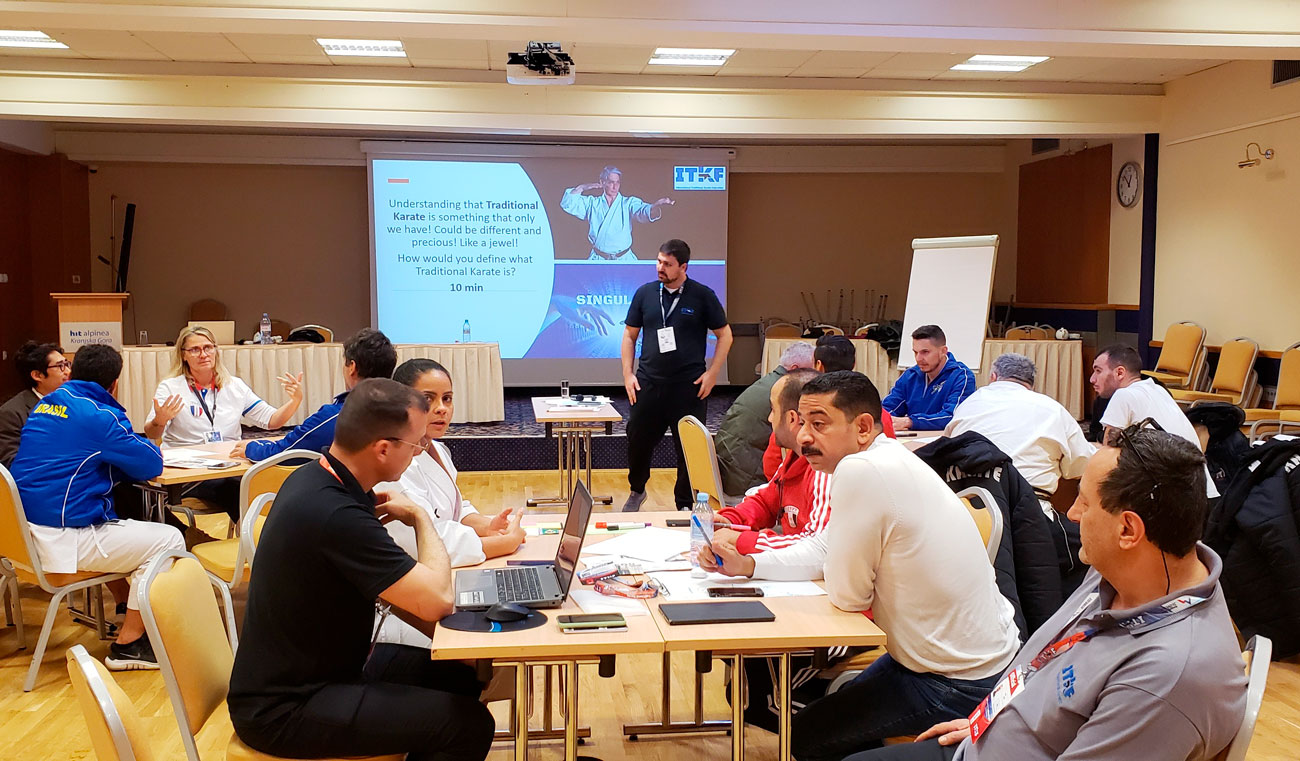
Strategic Planning in progress © ITKF
In an interview at the headquarters of the International Traditional Karate Federation (ITKF) in Curitiba, Gilberto Gaertner, chairman of the entity and Vinicius Santana Pinto, director of Innovation, announced the activities that will guide the management of traditional karate-dô in the next four years.
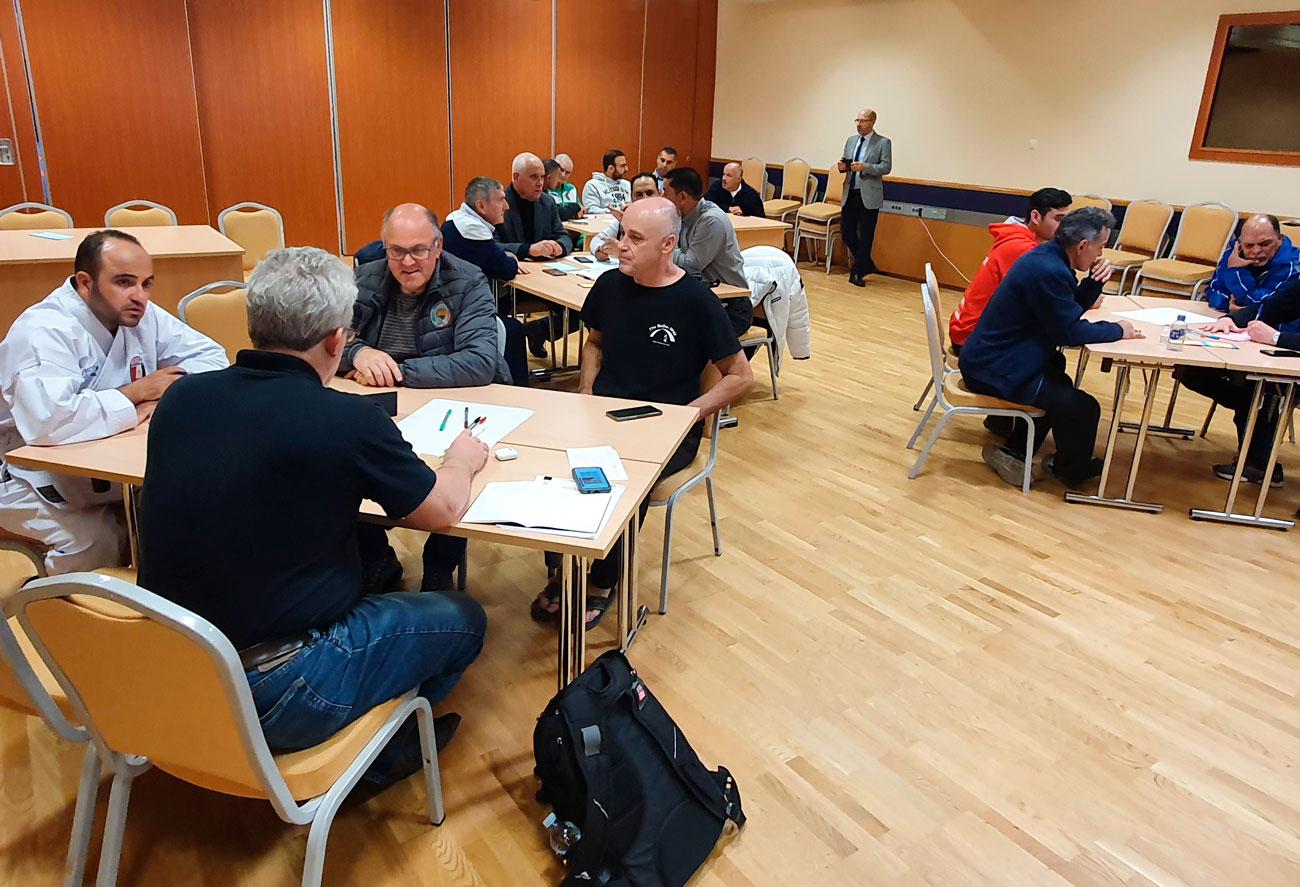
Strategic Planning in progress © ITKF
BUDO – THE WORLD CHAMPIONSHIP FULFILLED ITS ROLE AND REVEALED A NEW GENERATION OF ATHLETES. BUT WHAT WAS THE POLITICAL OUTCOME OF THE EVENTS HELD IN SLOVENIA?
Gilberto Gaertner – I believe that the outstanding fact at the moment is the institutional consolidation. We went through countless turbulences and many changes in the last four years, but we resisted, overcame difficulties, strengthened ourselves and grew. To paraphrase a great volleyball coach known worldwide, Bernardinho, “nothing resists work”. This was and remains our motto; our team works hard and is very committed. The natural result was the re-election of our management group for another four-year term at the head of the entity and the destinations of the modality.
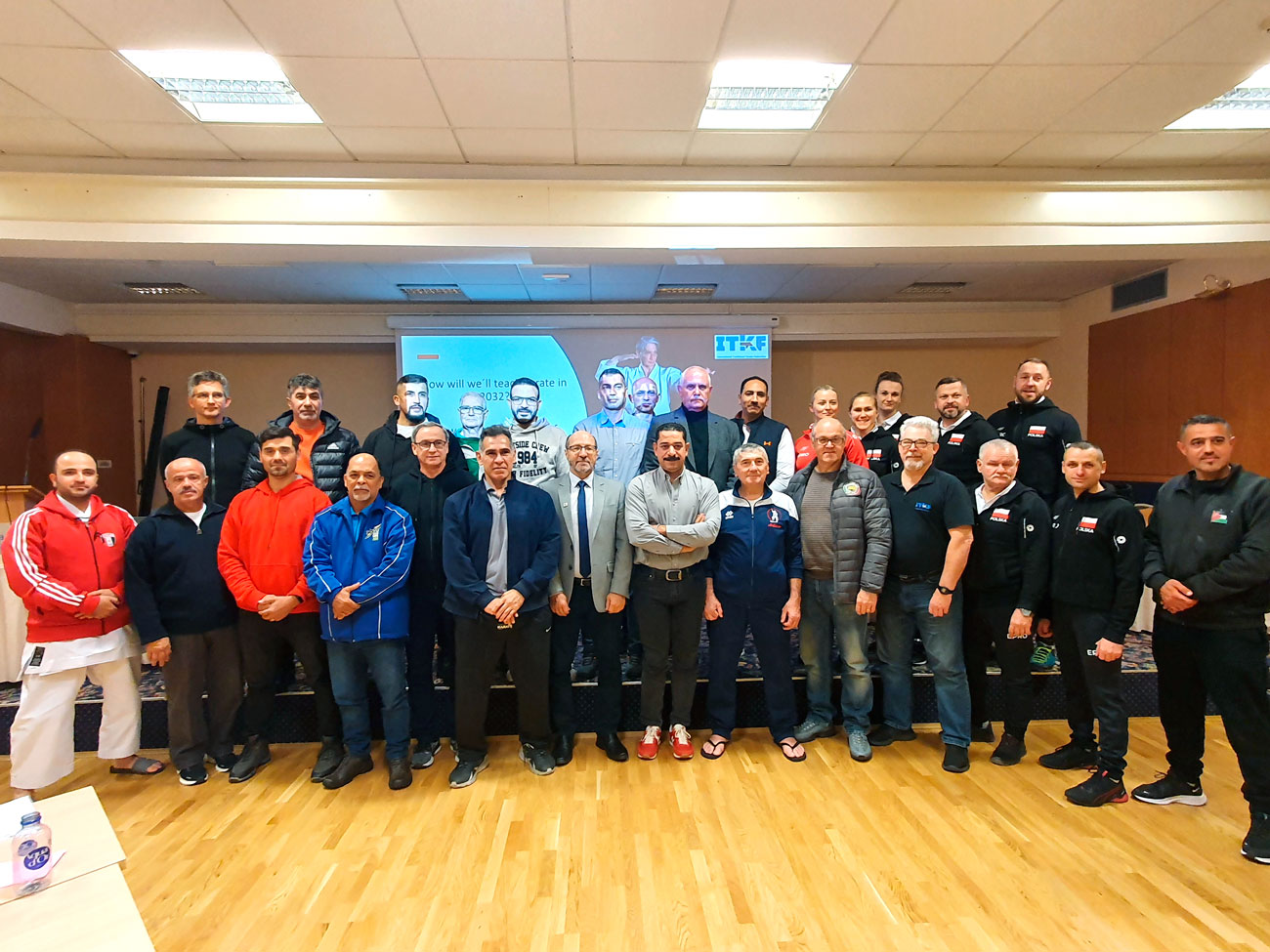
Participants in the strategic planning © ITKF
BUDO – BASED ON THIS PERSPECTIVE, WHAT WAS THE HIGHLIGHT OF YOUR FIRST CYCLE AT THE HEAD OF ITKF?
Gilberto Gaertner – I remember that in 2018, when I took charge of ITKF, I went to follow the European championship in Serbia and in a meeting with a leader of another karate organization, he laughed and said: “So are you going to pilot the Titanic?”. This speech, in a joking tone, shows the image that ITKF had at that time. I replied to the well-known professor that I would return after four years with the Titanic crossing the seven seas. That’s more or less what we managed to do working as a cohesive team and focused on strengthening the modality created by the shihan Hidetaka Nishiyama. We transform a momentarily weakened institution into a solid, strong and respected entity.
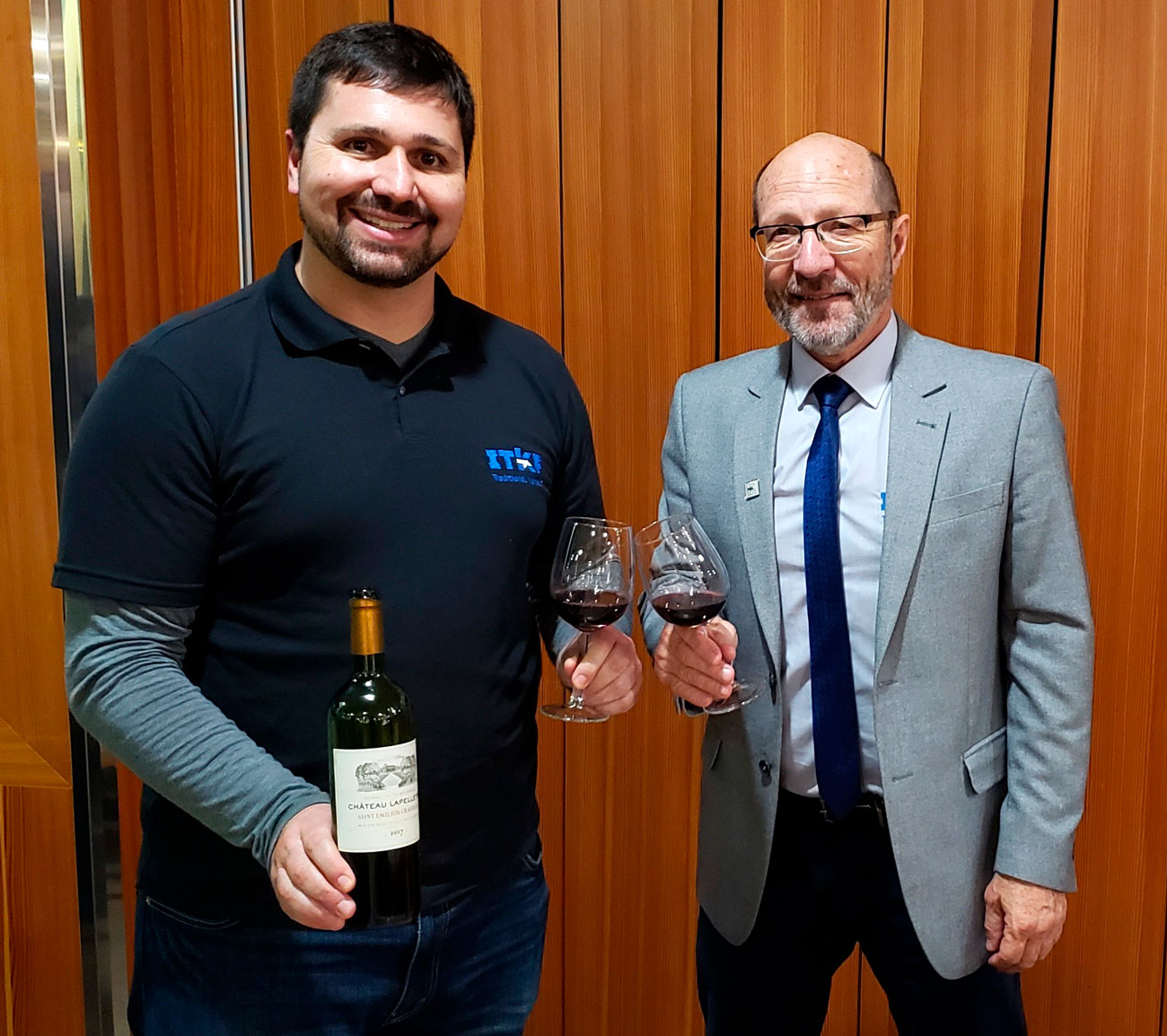
Mr Santana Pinto and ITKF Chairman celebrating the success of the strategic planning © ITKF
BUDO – WHAT DOES THE EXECUTIVE COMMITTEE SEEK WITH THE CHANGES MADE TO THE ITKF BOARD?
Gilberto Gaertner – Throughout its history, for the first time ITKF has its full board of directors, which will make our work team more representative and consistent. We had the pleasant satisfaction of approving the nomination of Professor Rômulo Machado, from Portugal, for the presidency at the general meeting. He had a long career as legal director of ITKF, accompanying Master Nishiyama since the historic meetings with the International Olympic Committee (IOC). As vice-president we now have sensei Sandrine El Marhomy, from France, who was also very close to master Nishiyama and comes to bring strength and female empowerment to ITKF management. The presidents of the regional federations of ITKF Africa (Ramy El Mekawi) and ITKF Asia-Oceania (Ibrahim Albakr) were elected, joining the presidents of ITKF Panamericana (Antônio Walger) and ITKF Europe (Roman Pavlovic). We expect teams from our regional organizations to leverage strong expansion and development across four continents, in line with ITKF’s global management.
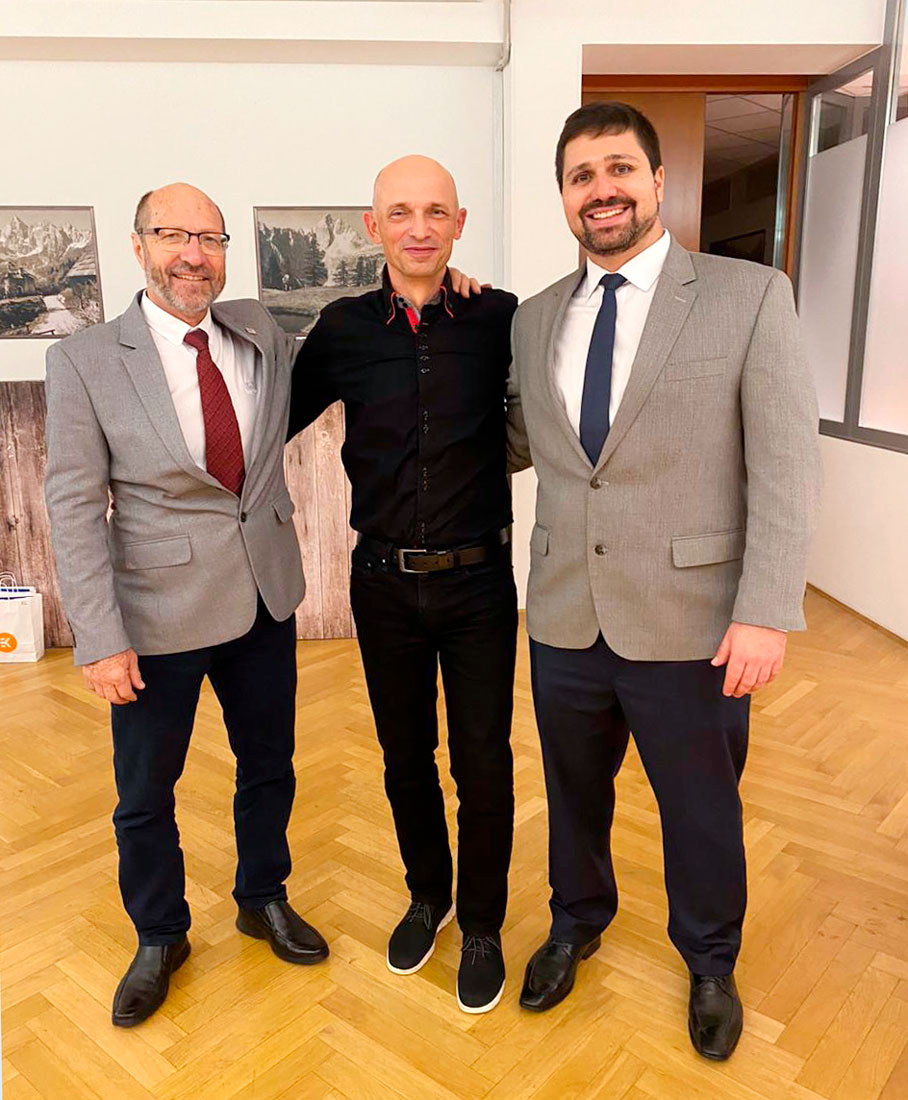
ITKF Chairman with Mr Pavlovic and Mr Santana Pinto © ITKF
BUDO – AS RE-ELECTED CHAIRMAN OF ITKF, WHAT DO YOU ENVISION FOR THE NEW PERIOD AT THE HELM OF THE ENTITY?
Gilberto Gaertner – I see the 2023/2026 quadrennium as a cycle of expansion, innovation, sustainability and strategic partnerships. We are developing a very solid strategic plan to direct and leverage our path. The work is being led by sensei Vinicius Santana Pinto, Director of Innovation at ITKF.
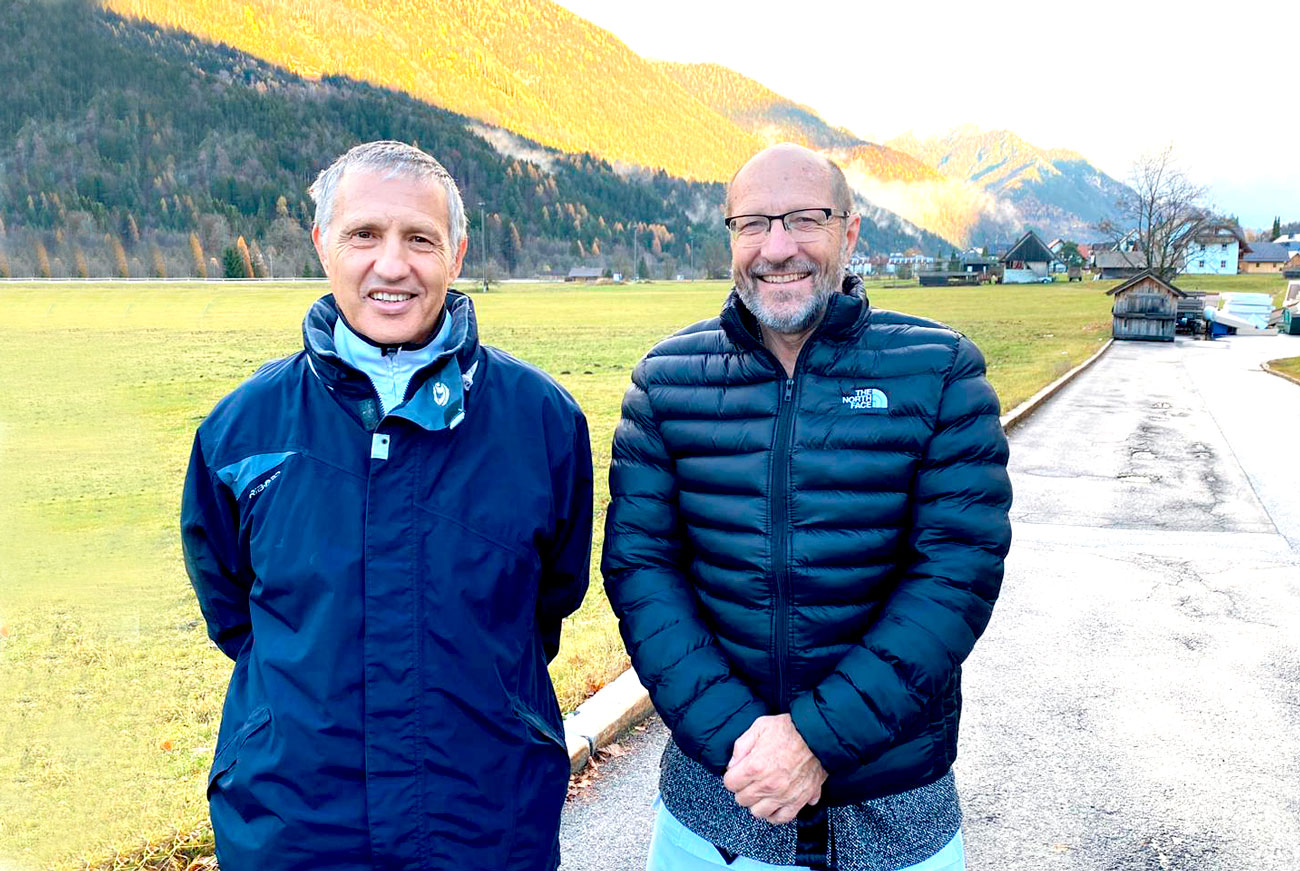
Romulo Machado and ITKF Chairman © ITKF
Three-time world champion, electrical engineer and currently manager of Technology and Projects at Multinational Company, Vinicius Santana Pinto detailed his work plane.
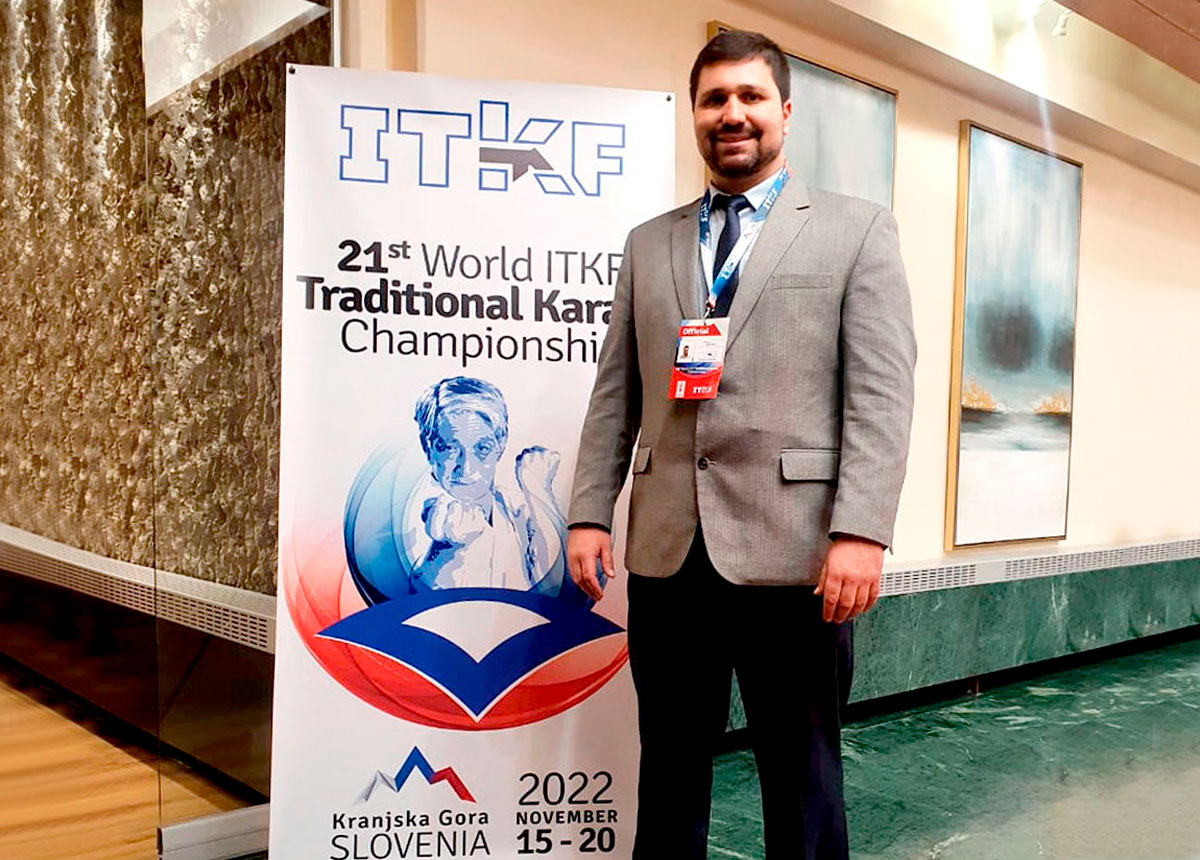
Vinicius Santana Pinto, Vina, Director of Innovation at ITKF © ITKF
Budo – How is the second ITKF strategic planning cycle being formatted?
Vinicius Santana Pinto – It is worth remembering that in the first cycle we consolidated in a structured way all the planning actions built in 2019, with the collaboration of presidents, managers, referees and athletes from different countries, respecting diversity and cultural plurality. The second cycle of strategic planning, launched on October 12, 2022 – available on the Zoom platform for all ITKF members – contains important reflections on what was discussed in Slovenia. The face-to-face meetings provided contributions, reflections and views from people from the four great continents. We are now in the phase of consolidating all this to complete the strategic planning by the end of the first quarter of 2023. Looking ahead, people understand that we must increasingly add technologies and scientific research, maintaining the legacy of Master Nishiyama. Traditional karate is undergoing a transformation process and we are fully convinced that looking to the future in a structural way will allow ITKF to walk in the medium and long term in a sustainable way.
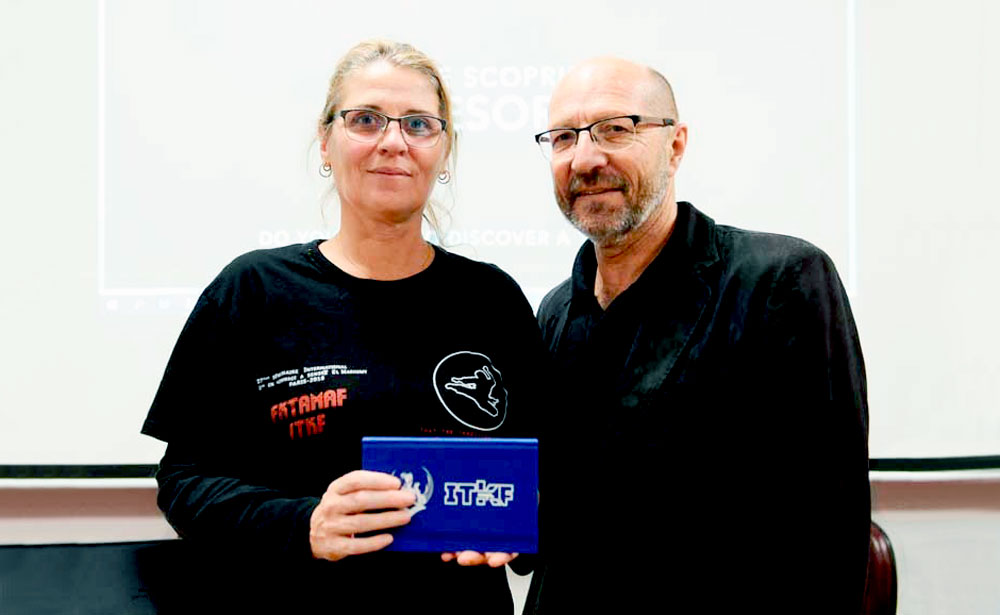
Mrs Sandrine and the ITKF Chairman © ITKF
BUDO – WHAT REFERENCE IS BEING USED IN THE CURRENT STRATEGIC PLANNING?
Vinicius Santana Pinto – In the first cycle we used the methodology of Michael Porter (Harvard professor), we built the SWOT matrix (opportunities, threats, weaknesses and strengths) in the context of management, competition, politics and socio-educational. We conduct face-to-face meetings using brainstorm and design thinking. In the second cycle of strategic planning (2023-2026), we added the Strategic Building Blocks (SBB) Veras & Rasquilhas methodology. In it we have strategy concepts created by McKinsey (business model), the STEEPH matrix (social, technological, economic, ecological, political and human) and the Foresight concept (thinking, mapping and debating the future). This methodology provides flexibility in the projection of future scenarios in a very simple way and with annual revisions. The process allows you to hold collaborative meetings in blocks, in an agile and very didactic way.
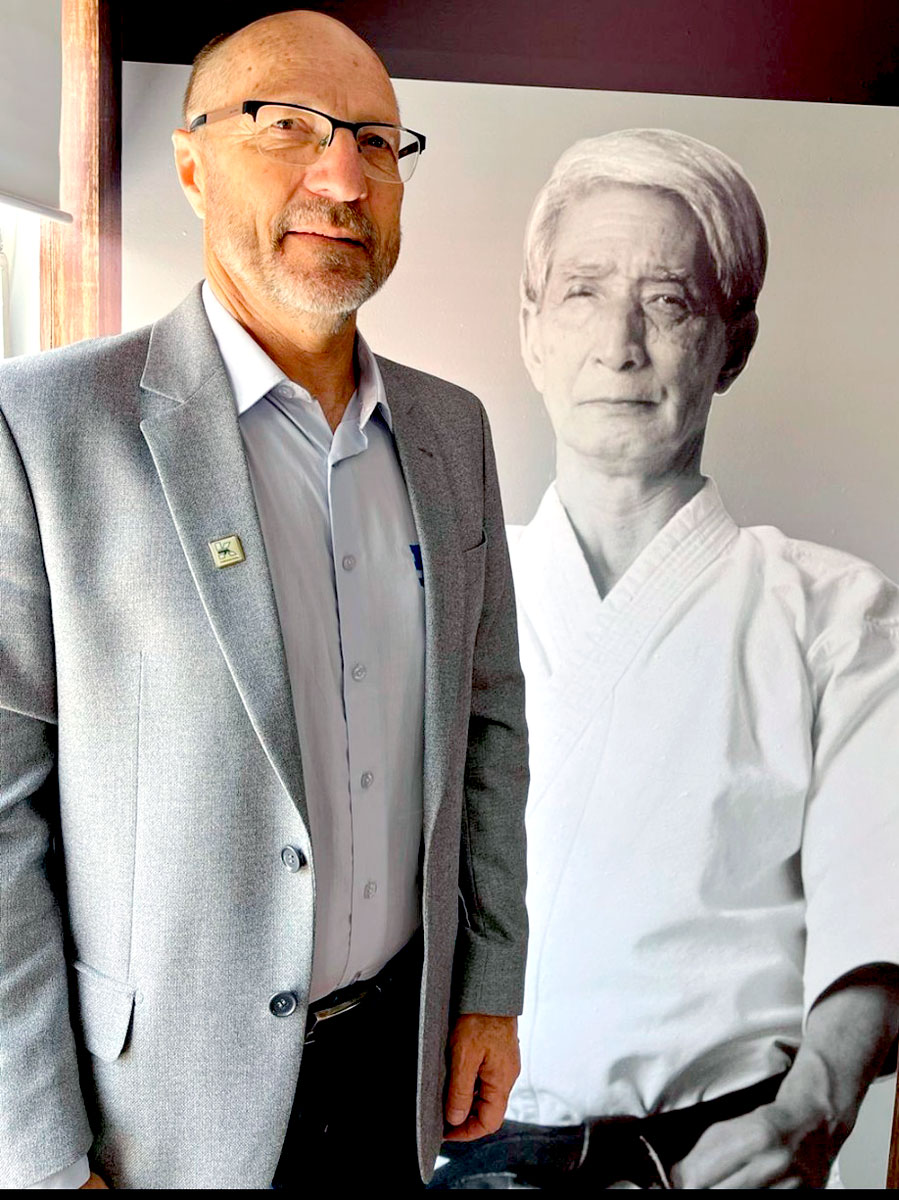
Mr Gaertner, ITKF Chairman © ITKF
“These face-to-face planning meetings showed that collaborative work is the way for the organic and sustainable growth of ITKF.”
BUDO – HOW AND WHEN WERE THESE PROCESSES CARRIED OUT?
Vinicius Santana Pinto – Basically, the SBB (Strategic Building Blocks) took place in three large blocks. The first, online, in October 2022, proposed reflections on what happened in the world and influenced changes in human behavior, with digital technology increasingly present. In the second, we assess very clearly how ITKF declares its mission, vision and commitments and how these statements are perceived by all presidents and practitioners of the modality. Finally, we apply reflective questions in order to identify how we deal with current and future challenges.
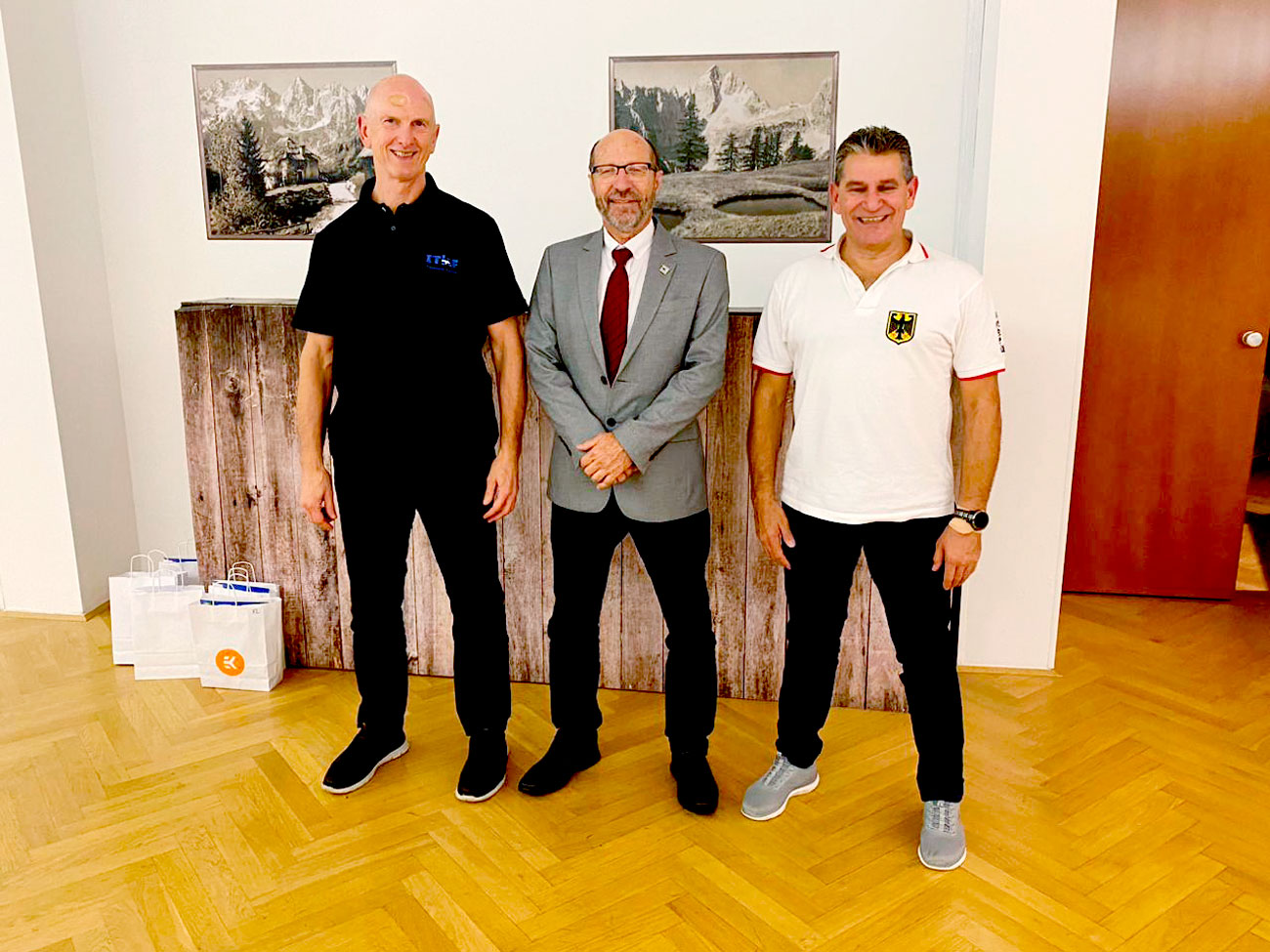
ITKF Chairman with Mr Schmoigl and Mr Eisenmann from Germany © ITKF
BUDO – WHAT WERE THE TOPICS DISCUSSED IN SLOVENIA?
In face-to-face meetings, we apply the future and foresight concept, that is, we think, map and debate the future – teaching and competitions – in a ten-year horizon. And we assess how behavioral attitudes are influenced by aspects such as technology and connectivity, environment and climate, politics and economics, social and human environment, health and well-being and education. In the third block, we plan the work until the end of the first quarter of 2023, which consists of consolidating the vision of all leaders and directors with a view to the future of ITKF. After the launch of ITKF 2023/2026 Strategic Planning, I am sure that the institution will continue to grow in an organic, sustainable, consolidated, organized way and will be a standard of organization in sport worldwide.
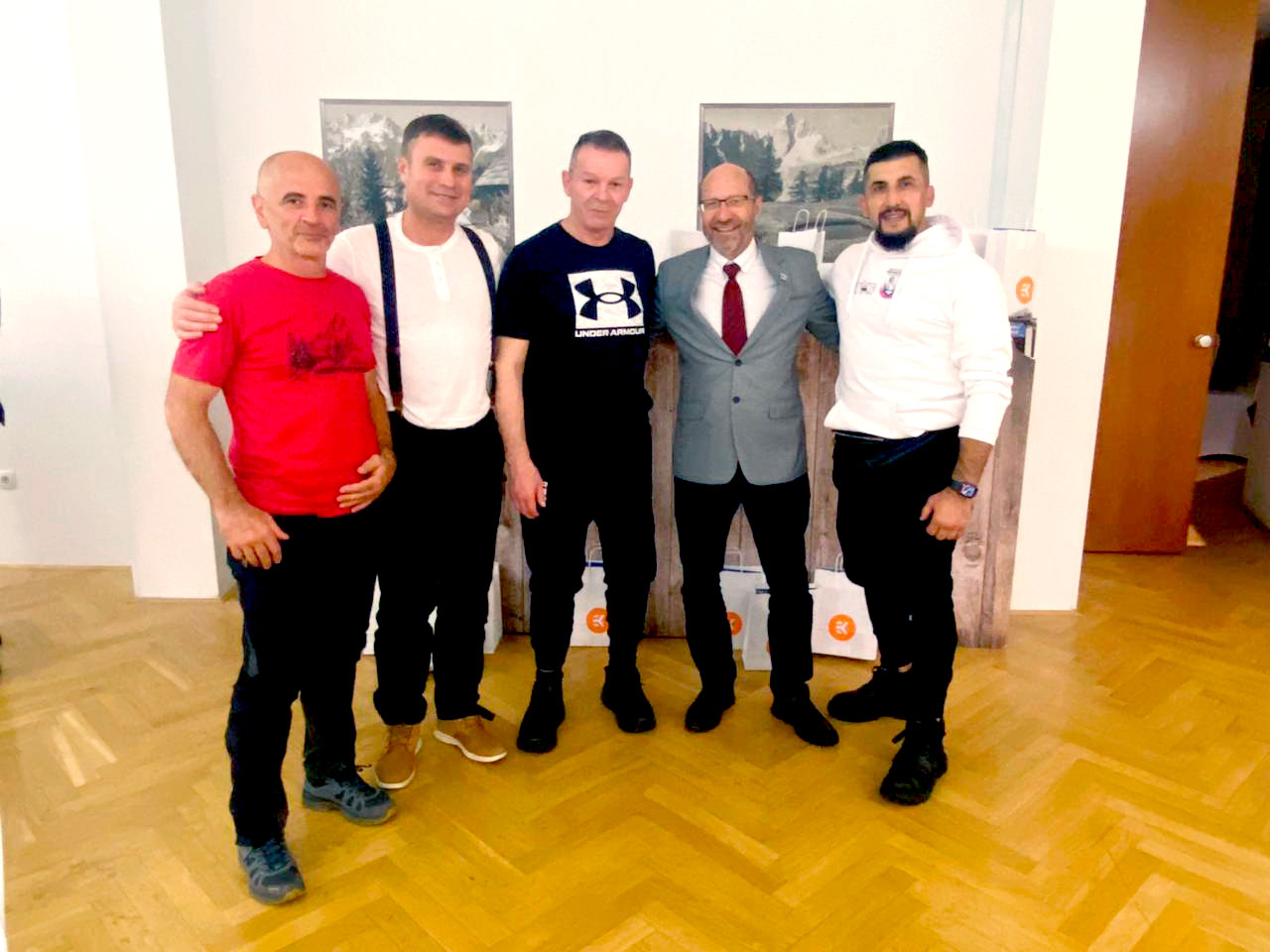
ITKF Chairman with Mr Cotescu, Mr Adascalitei, Mr Maranditi and Mr Mussat from Romania © ITKF
BUDO – WHAT ARE THE GOALS ALREADY DEFINED FOR THE FOUR-YEAR PERIOD 2023/2026?
Vinicius Santana Pinto – For now, I can say that we will bring the vision fully aligned with the best market practices, such as ESG (Environmental, Social & Governance) and will strongly contribute to the decarbonization of the planet. We will develop the University of Karate and connect it with scientific research (virtual reality, artificial intelligence, neuroscience) and consolidated technologies in the market to further stimulate the development of karate teaching and practice. We will always have Budo as our main reference, with our masters and teachers teaching karate in their schools and academies and continuing the great legacy of master Nishiyama.
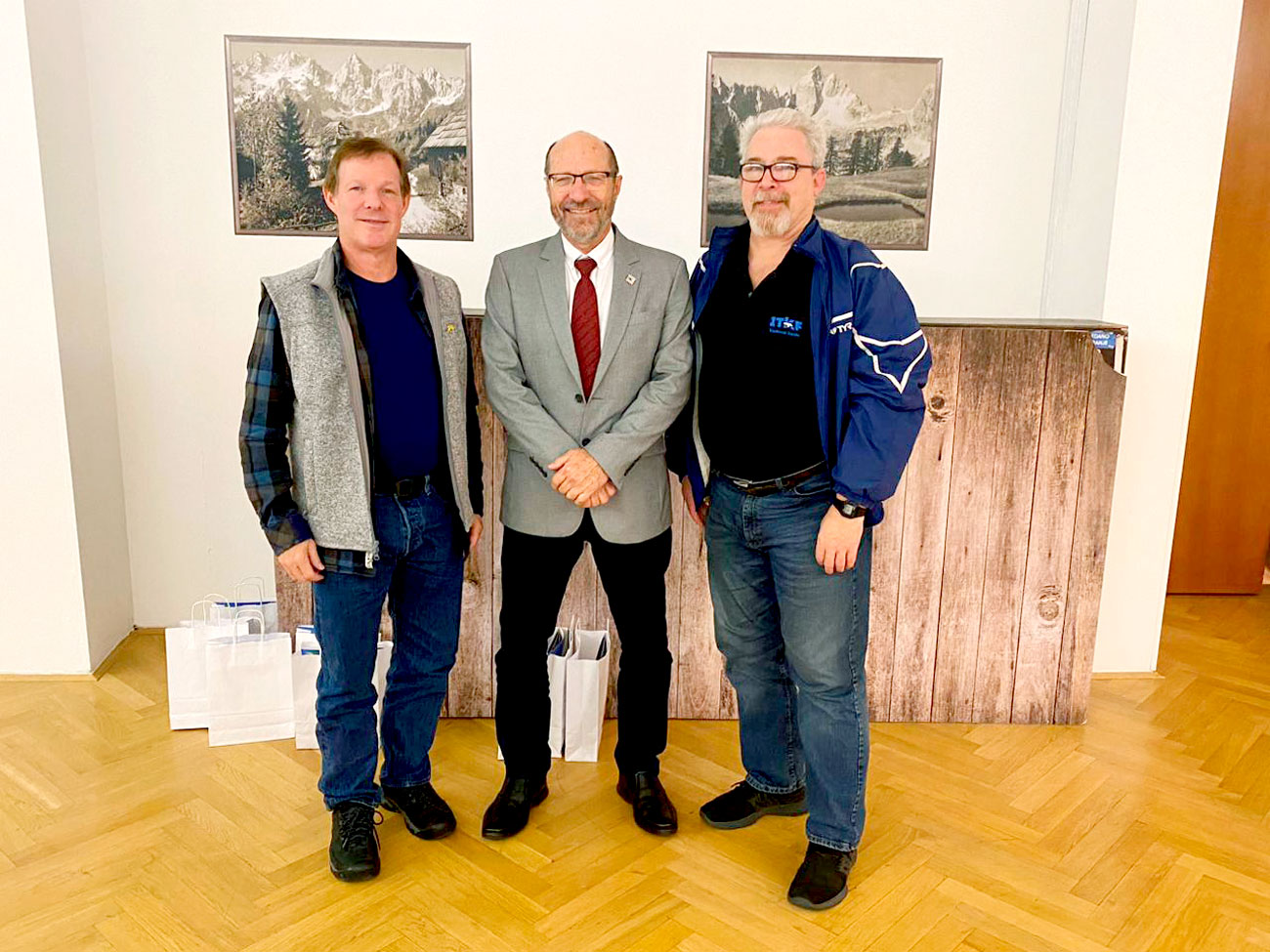
ITKF Chairman with Mr Bell and Mr Webb, representatives from the United States © ITKF
BUDO – WHAT ARE YOUR IMPRESSIONS ABOUT ITKF’S CURRENT STRATEGIC PLANNING AND ITS DEVELOPMENTS?
Vinicius Santana Pinto – I am particularly happy and impressed with the evolution and maturity of ITKF management. In Slovenia, we consolidated simultaneous transmissions via YouTube in the five kotôs in a very positive way and the icing on the cake were the tablets used in kata and enbu refereeing and using TK-VAR technology, that is, what we mapped in the first cycle of strategic planning came true. Broadcasting competitions live was nothing new, but this year we added much more quality. We have an excellent team of referees and athletes, but when there was a question of judgment, the use of TK-VAR proved to be efficient. I believe this gave more credibility to the excellent event. I leave these face-to-face planning meetings convinced that collaborative work is the path to the organic and sustainable growth of ITKF.
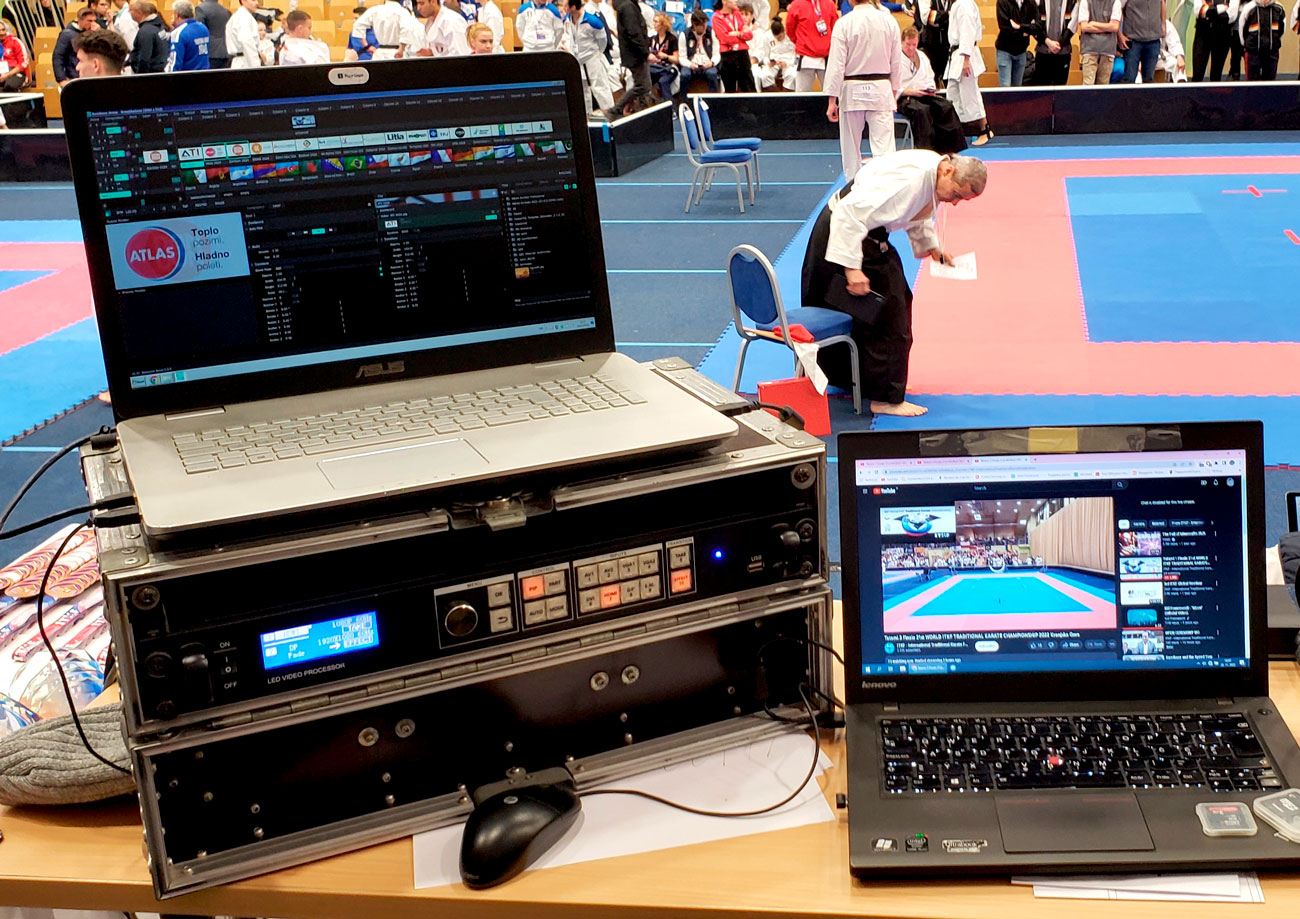
The TK-VAR © ITKF
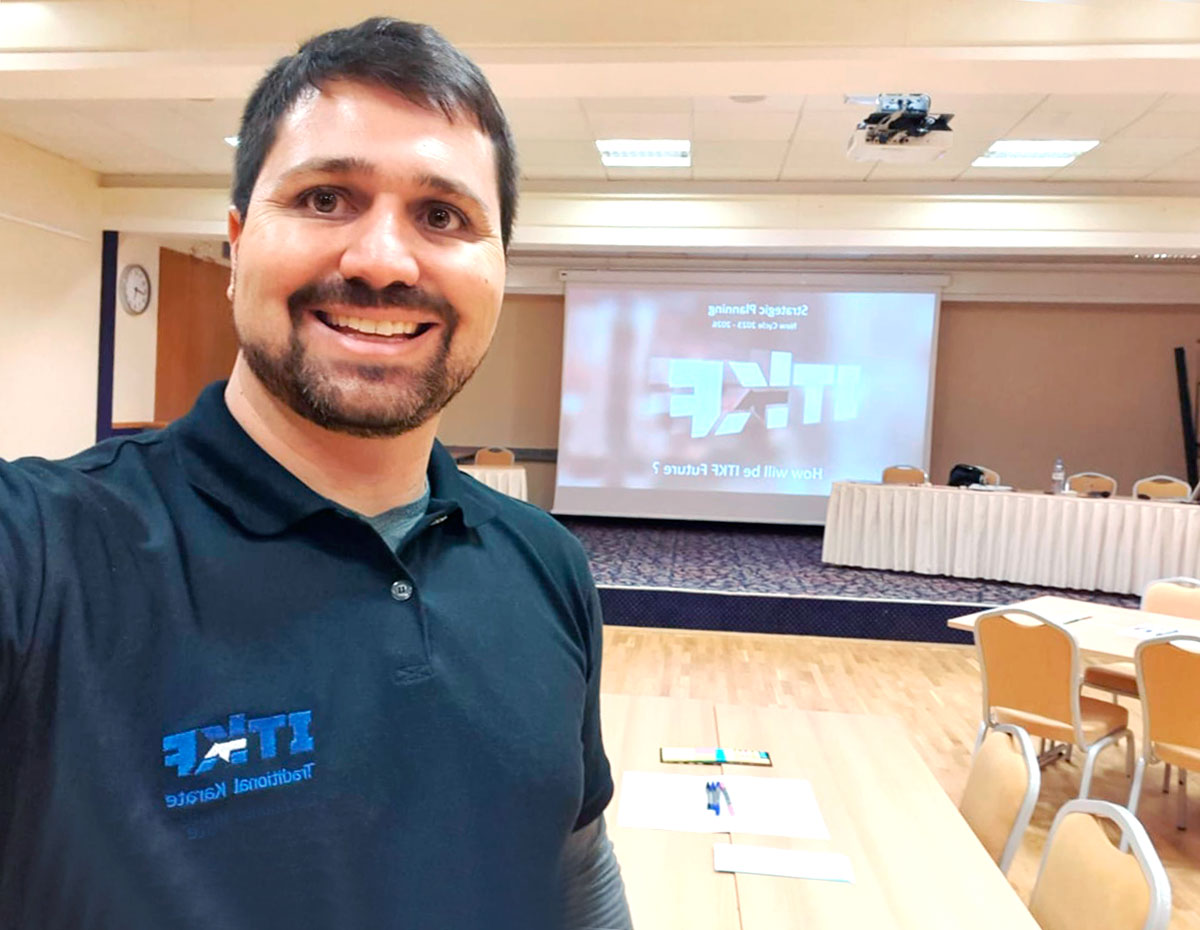
Sérgio Bastos, president of CBKT and Gilberto Gaertner, chairman of ITKF © ITKF
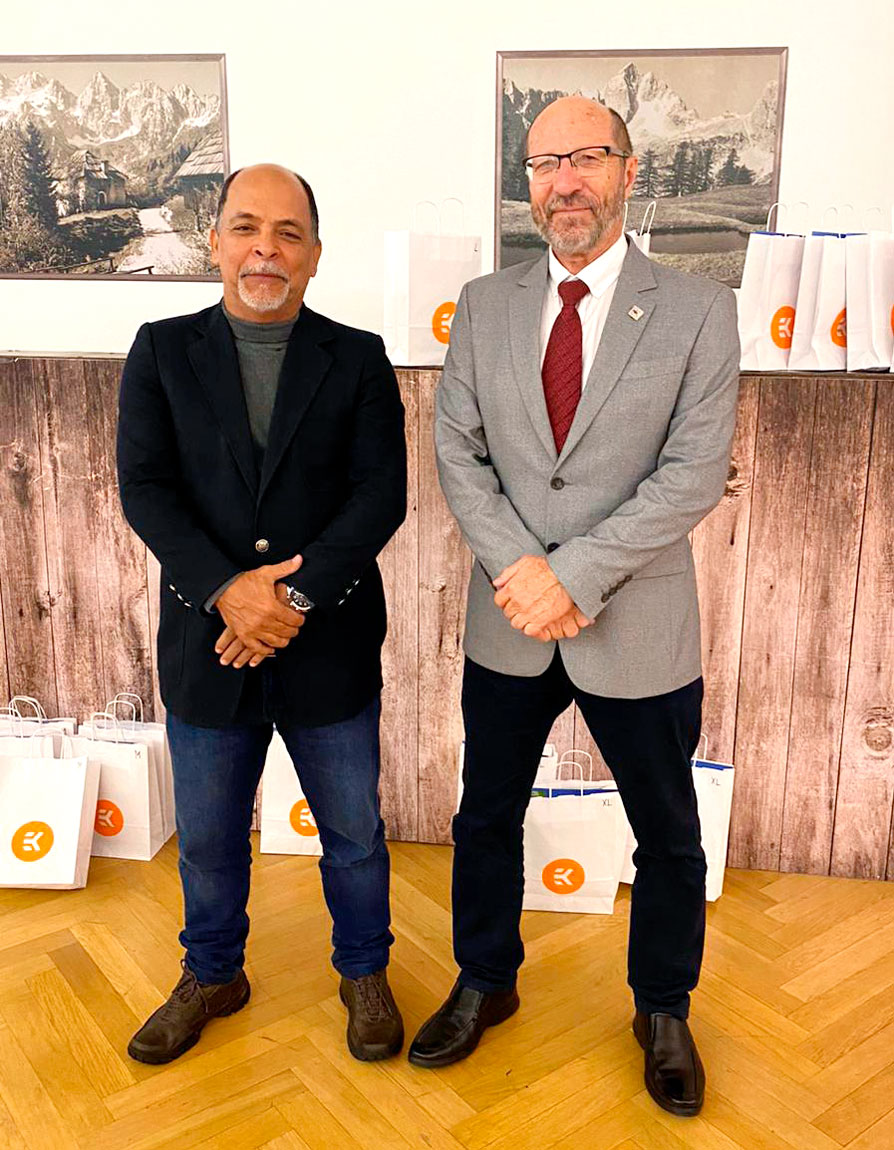
Vinícius Pinto promises to deliver, by the end of the first quarter of 2023, the main objectives for the next cycle © ITKF

18 de fevereiro de 2026
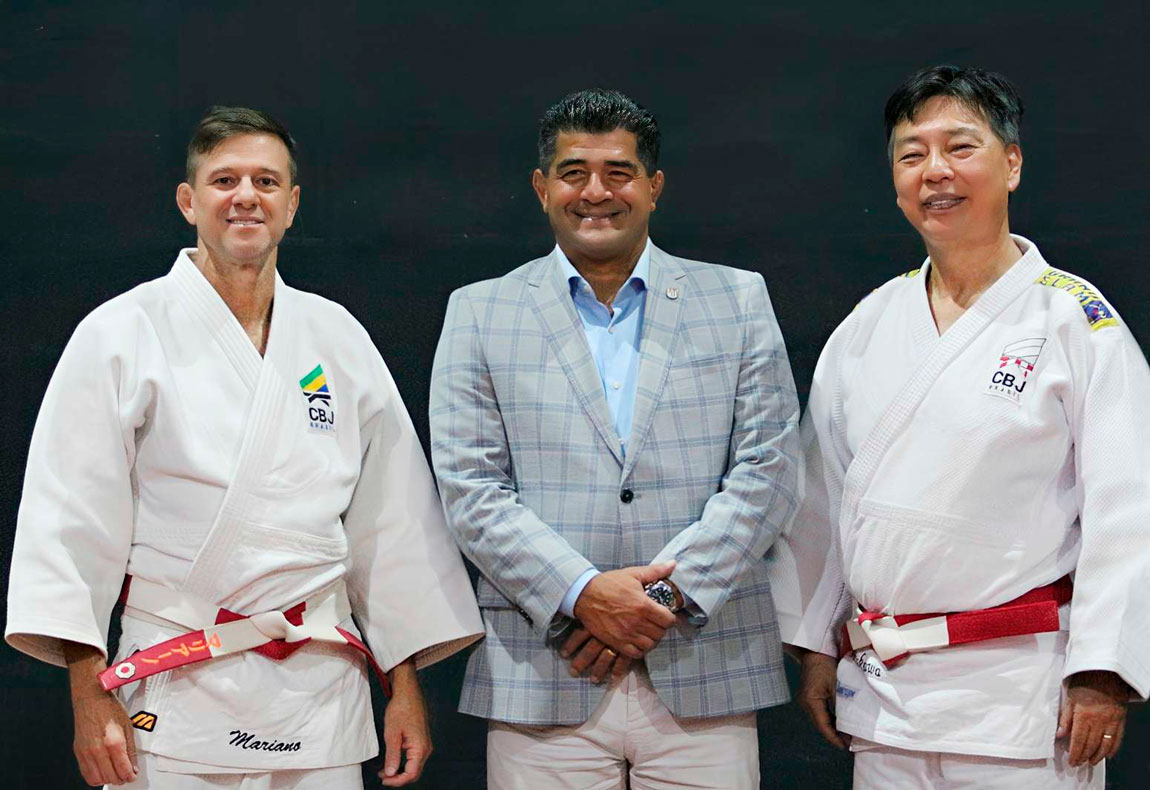
14 de fevereiro de 2026
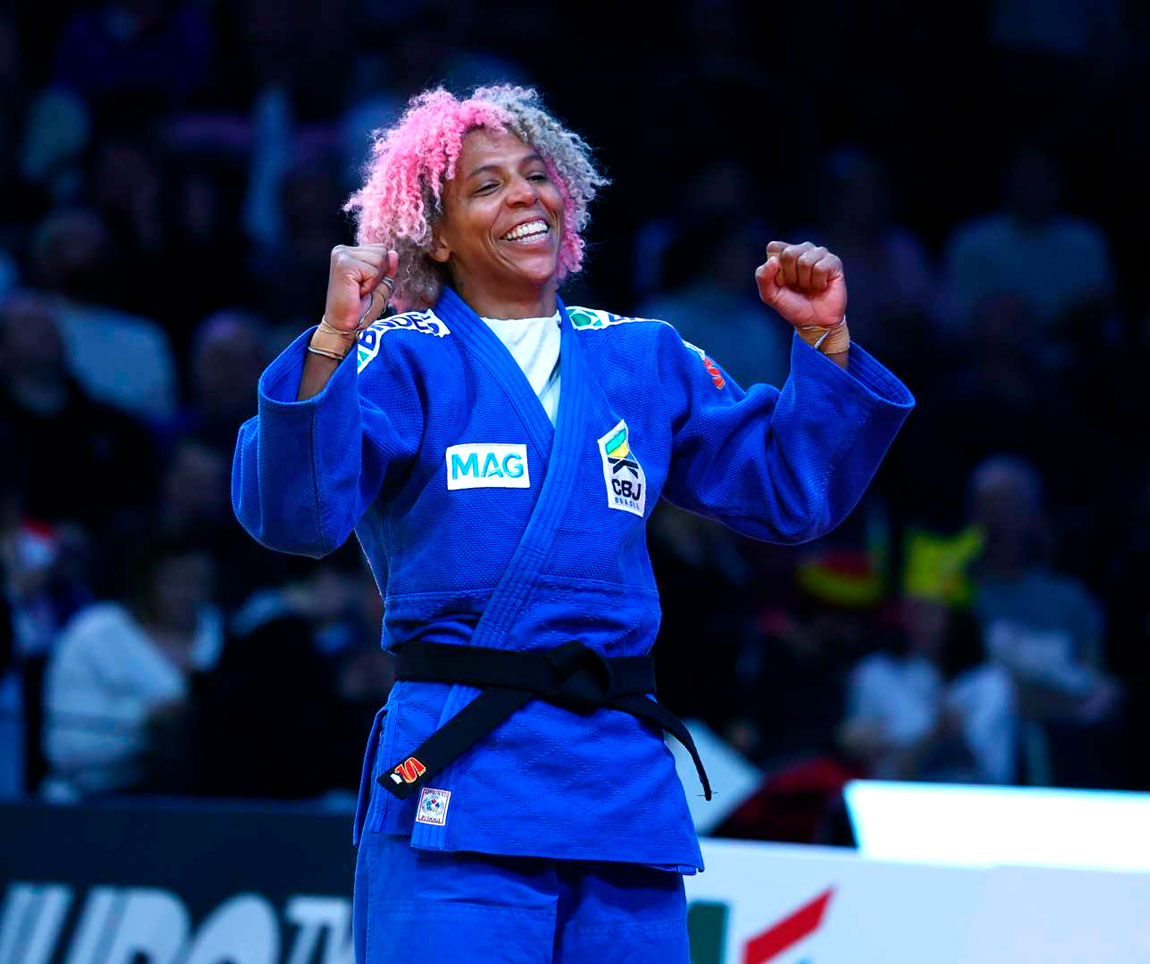
08 de fevereiro de 2026